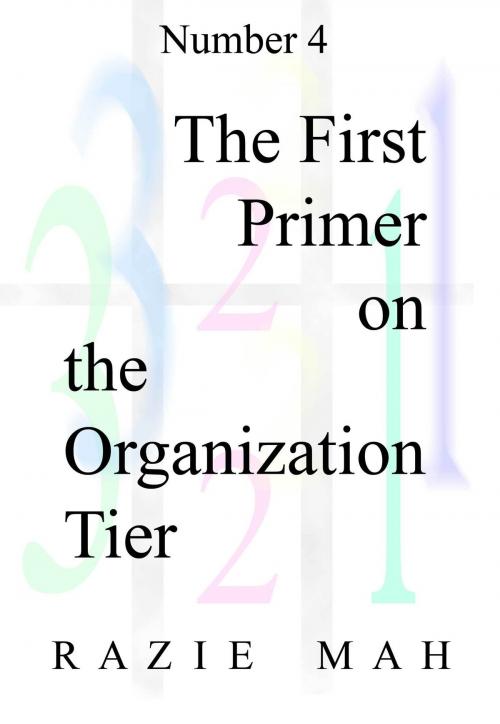The First Primer on the Organization Tier
Nonfiction, Reference & Language, Education & Teaching, Study Skills, Social & Cultural Studies, Social Science, Sociology| Author: | Razie Mah | ISBN: | 9781942824039 |
| Publisher: | Razie Mah | Publication: | April 25, 2015 |
| Imprint: | Smashwords Edition | Language: | English |
| Author: | Razie Mah |
| ISBN: | 9781942824039 |
| Publisher: | Razie Mah |
| Publication: | April 25, 2015 |
| Imprint: | Smashwords Edition |
| Language: | English |
Why a series of primers?
These primers provide in depth coverage of the nested form constructs in the book: How to Define the Word “Religion”.
Primers 1 and 2 developed the category-based nested forms discussed in “the meaning underlying the word ‘religion’”.
The next several primer address “the presence underlying the word ‘religion’”. This presence can be appreciated through a fully differentiated model of “humans in our current Lebenswelt”. Humans exist in society. Humans organize. Human live as individuals in community. Each of these modes of existence relate to one another as a nested form:
Society( Organization( potential of Individual in Community))
Primer 3 diagrams the individual in community. Primers 4 and 5 present the organization tier. Primer 6 introduces the institution level of the society tier, starting with an example, the family. Primer 7 reviews How Institutions Think (1986) by British anthropologist Mary Douglas.
Why a series of primers?
These primers provide in depth coverage of the nested form constructs in the book: How to Define the Word “Religion”.
Primers 1 and 2 developed the category-based nested forms discussed in “the meaning underlying the word ‘religion’”.
The next several primer address “the presence underlying the word ‘religion’”. This presence can be appreciated through a fully differentiated model of “humans in our current Lebenswelt”. Humans exist in society. Humans organize. Human live as individuals in community. Each of these modes of existence relate to one another as a nested form:
Society( Organization( potential of Individual in Community))
Primer 3 diagrams the individual in community. Primers 4 and 5 present the organization tier. Primer 6 introduces the institution level of the society tier, starting with an example, the family. Primer 7 reviews How Institutions Think (1986) by British anthropologist Mary Douglas.















